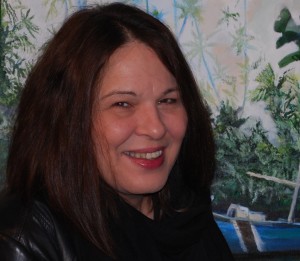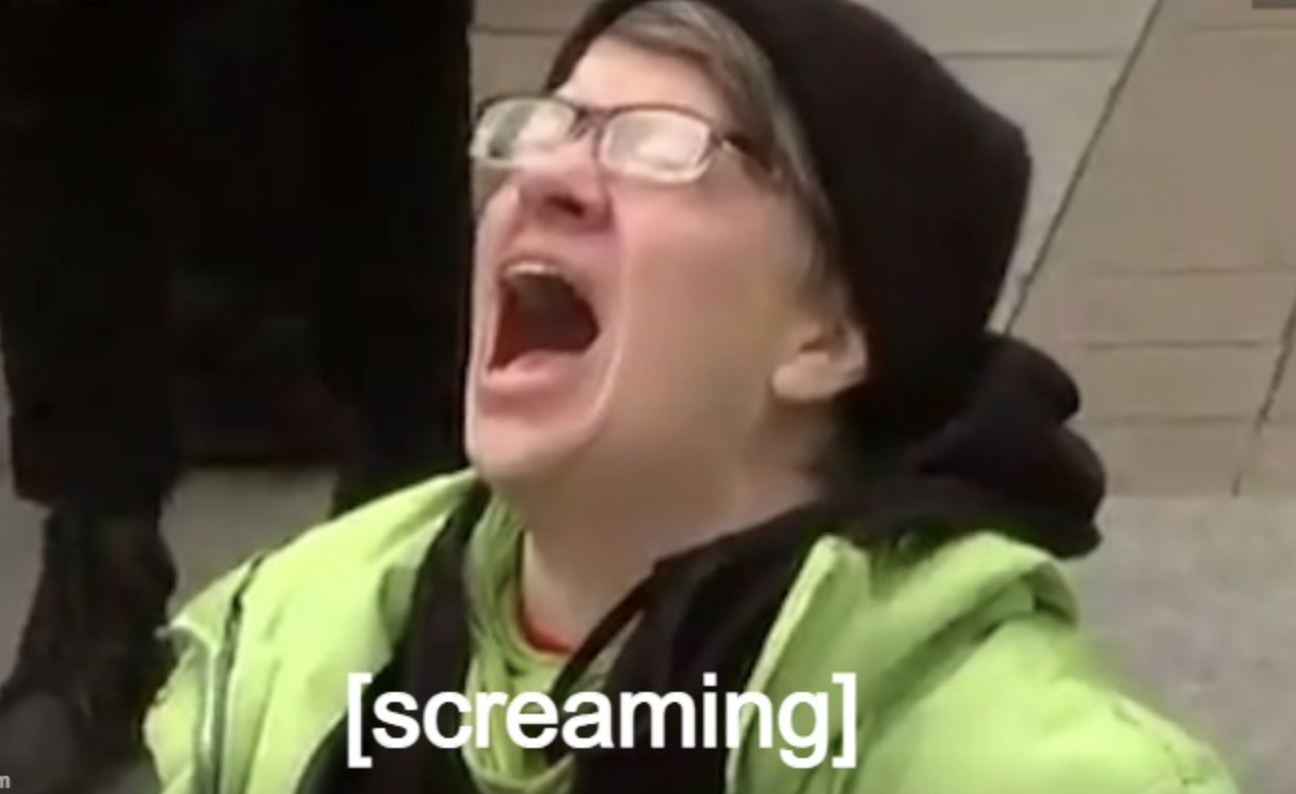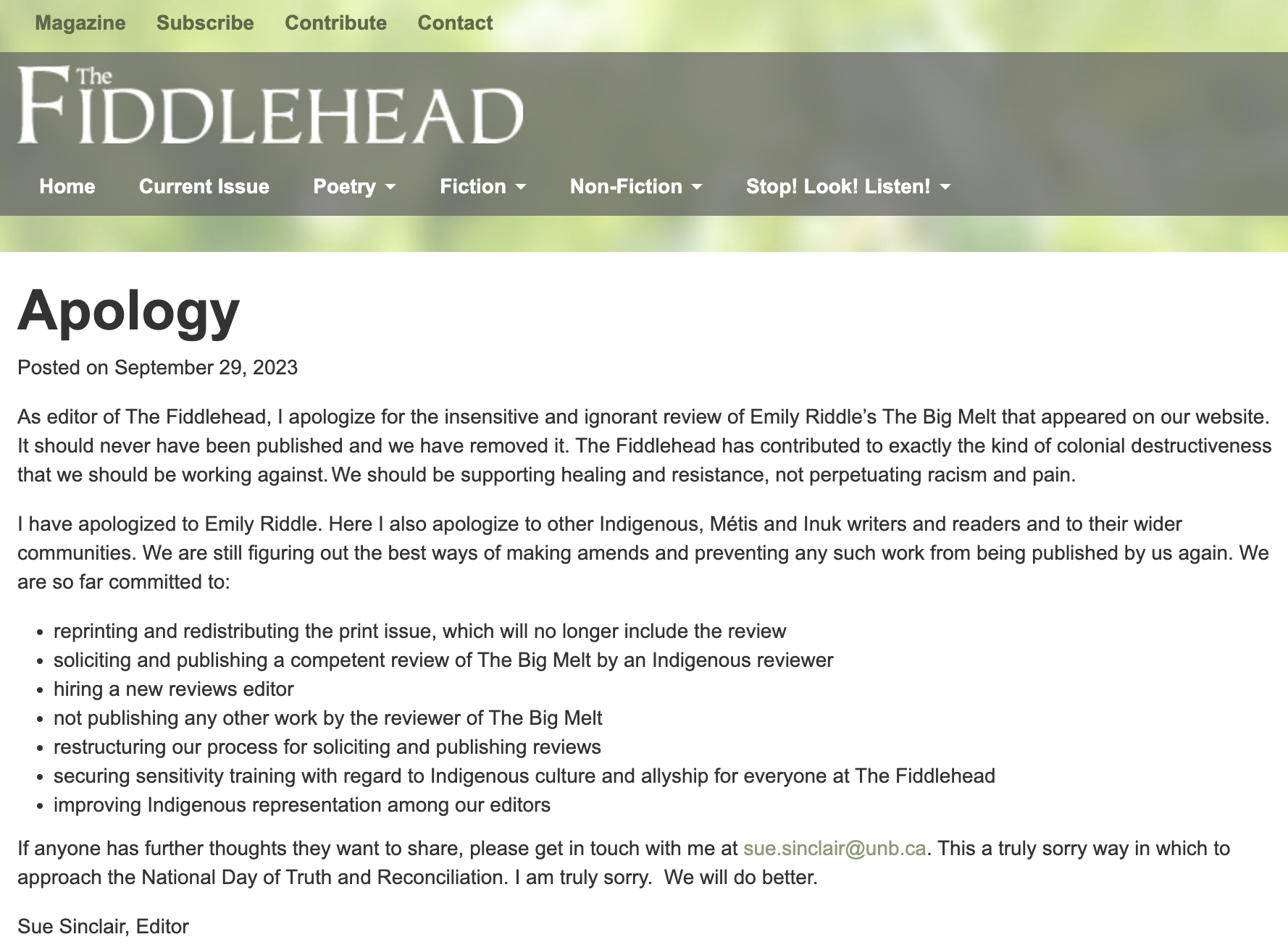Patricia Webb is a writer, poet, and artist, who lives in Port Moody with her husband, artist Peter Hilborne. She has one chapbook, the bungled dance, and has been published in small and literary magazines. In 2011, she graduated from SFU’s Writer’s Studio program. Her nonfiction piece, “Second Time Around”, was a finalist for the 2014 CBC Creative Nonfiction Prize. Her short story,  “The Stranger”, won the 2014 BC Federation of BC Writers Literary Writes contest. Trish is currently rewriting her first novel, working on a collection of short stories, a children’s book, and a poetry manuscript.
“The Stranger”, won the 2014 BC Federation of BC Writers Literary Writes contest. Trish is currently rewriting her first novel, working on a collection of short stories, a children’s book, and a poetry manuscript.
OM: You dropped out of the writing scene and stopped submitting to publishers in 1998. Why did you withdraw? Was the break healthy? Did you define yourself as a writer at that time, or was it just something you did? What prompted you to end this self-imposed break?
PW: I wasn’t making much headway with the more prestigious literary magazines and I thought it was an indication my work wasn’t good enough. I had no idea, the sort of rejections I was receiving were a good sign and reason to hope. Around that time I was also long listed for the CBC Poetry Prize, but I thought it was a fluke. Blame insecurity, perfectionism? I moved to the interior and kept writing in solitude, trying to “solve” the problem of my inferior work. While squeezing every ounce of juice out of my poor beleaguered poems, I became locked in a vicious cycle of over editing and/or prematurely editing pieces before they had time to breathe. I was choking the life out of the poor buggers and what was worse, as my content shrank so did my confidence in my “voice”. In 2010, I moved back to the coast and a friend handed me a pamphlet for the Writer’s Studio (an intervention of sorts). It was a Hallelujah moment for me. The deadlines forced me to write quickly, turn off my internal editor, and the floodgates opened.
OM: Is there such a thing as momentum when it comes to writing? Do you reach a point where your list of credits and contest wins pushes you up into the next tier of recognition?
PW: The next tier of recognition – sounds ominous. I don’t know. Maybe if you win the Booker or something. I think momentum has more to do with whether a particular work manages to strike a common chord with readers. I’m not saying lesser known books aren’t “chord worthy” but there is an X factor involved. Great writers have written fantastic books that don’t catch on. Who knows why? I prefer to concentrate on craft because that’s where the lion’s share of the joy lies for me. If f I ever write something I’m thoroughly satisfied with I’ll probably wet myself (or have written it on the walls of some institution). Of course, I’m older so that might happen regardless.
OM: The CBC contest is perhaps your highest profile win. Did you get a boost from this? Were you contacted by people who heard about you through the contest?
PW: In terms of validation, the experience was a real boost. There was some exposure, in terms of publicity but no one’s come knocking on my door offering me book deals or desperate to be my agent. Wouldn’t that be super! The CBC has asked to hear about any future successes, so who knows, maybe the connection will help sway those considering publishing my work. I haven’t tested the waters yet.
OM: My sense is that publishers and agents expect writers to be very active in self-promotion with online social networks, personal connections, and participation in readings, conferences, etc. How do you plan to let the world know about your writing?
PW: Um…as a deflection, I’d like to shamelessly promote Canadian books. For example, best selling author, Betsy Warland created Oscar’s salon where she posts excerpts of her (recently published) book, Oscar of Between, and pairs it with work from a guest writer. Readers are invited to spin off down their own creative paths and/or offer feedback. I’ve been following along and it’s addicting. Author Janie Chang posted her experiences publishing her first novel, Three Souls, on her website. She also has an ongoing campaign where readers post selfies of book sightings. Readings will be my “go to”. If you manage to connect with audience, they’ll want to read more. Prolific poet and writer Catherine Owen is always on tour promoting her latest book. (Check out The Other 23 & a Half Hours Or Everything You Wanted to Know that Your MFA Didn’t Teach You which explores, among other things, this very subject.) I could go on and on, which brings me to your blog. Exchanging ideas, creating opportunities and expansion within the industry is one of the keys to creating a vibrant and productive environment in which we can all achieve our goals.
OM: What do you think about online only magazines? Does a credit from one of these carry the same weight as a credit from a printed journal? For some reason, I keep thinking of the business concept of “barriers to entry”. Anyone could start an online journal almost instantly with little cost. Producing a physical product, however, seems to require a much higher investment in labour, organization, and expense. So perhaps the barriers to entry screen out all but the most robust products? On the other hand, perhaps the protection of incumbents merely blocks new talent, new energy. Agree? Disagree?
PW: Anyone can start an online magazine but it’s difficult to sustain an audience, a factor which will help shape and prune the field. In the end, a good journal is a good journal and there are some impressive ones online whose reputations are growing. I’m not sure if they carry as much “clout”. They should, and I predict it won’t be long before they do. The argument for vetting talent is a complicated and messy affair, and underfunding complicates the issue further. Plenty of wonderful writers aren’t being read. University presses (home to some of our longest standing and most reputable journals) receive a good chunk of the small amount of government financial support available. I don’t begrudge anyone getting funding but this environment places the decision making into precious few hands and leaves hundreds of talented writers vying for very few spots. The editor of those magazines (if their rejection letters are to be believed) will tell you, they are forced to turn away hundreds of comparable pieces every year. Online magazines are one place government funding doesn’t dictate survivability. The more diverse voices are given a chance, the more readers needs are met. It’s a win/win.
OM: Are you currently submitting work to journals? Is there any point in doing that, or should writers concentrate on book publication?
PW: I’m not currently submitting anywhere because I’m determined to finish my current projects and I don’t have time to do both right now. Though I do have one piece, a small chapter I’m considering sending out as a short story because it won’t quit bothering me. Aside from the sheer joy of getting a piece published, a publishing credit and developing a readership are positive signs for agents and publishers. If at some point you want to gather your work up and submit the entirety as a book, it’s a good idea not to pre-publish every single piece, so you leave publishers something new to present to the world.
OM: You’ve had great success with contests. Do you continue to submit to them on a regular basis? What are some of your favourites? Do you screen your work for “contest friendly” pieces or do you just send your best?
PW: I tend to use contests as deadlines. They help me stop fiddling endlessly with a given piece. No, I don’t have any favorites but I’m drawn to places that pay well, or have a strong reputation. I’m old and it behooves me to aim high. Nine times out of ten, you’re going to be rejected anyways, so you might as well fall from a glorious height.
OM: Have you had much luck with grants?
PW: I haven’t applied for any.
OM: Of the many projects you’re working on, which one will you submit first for publication? What is your publication strategy?
PW: I’ll submit my memoir, Significant Others. (Hopefully, I didn’t just jinx it.) My plan is to research and find an agent, which could include pitching it at Writer’s conferences and festivals. If none of that works, I’ll hire another set of eyes and go through the editing process again. Self publishing is another viable consideration.
OM: What’s the advantage of working on so many projects at the same time? Is this how you’ve always worked? Would it be best to concentrate on one thing at a time? One advantage I can see is that switching from one project to another is like taking a break, even though there’s no interruption in production.
PW: Yes, this is how I’ve always worked. There are some creative advantages including the pause you mentioned, but I’m not widely published, so there’s one indication of how well it’s working for me. Most of my projects are far enough along that I’ve recently changed tack and decided to finish them off one at a time. If I manage to flog this one, it could herald in a miraculous chain of events. Imagine finishing off one book after another in short order. Ha, whose method is viable now? (Sorry.)
OM: Is writing something that can be done in isolation, or is connection with the community critical?
PW: I fluctuate between isolation and community now. When I need a boost, community renews my energies and offers interesting collaborations and opportunities, timely advice, friends, food, even a shoulder to cry on.
OM: Does your writer ego/self-esteem fluctuate according the accumulation and magnitude of credits, or do you run at a steady state? What will it take to impress yourself?
PW: I’m not going to lie and say those things don’t affect me. After the CBC nomination, my enthusiasm was unbounded, but when my feet hit earth again, I didn’t like the feeling of being controlled by such a random event. You have to ask yourself why you write. The bottom line is I love to create. Keeping my focus there is very grounding. My ego still rattles when I get stuck, or head into the phase where I hate what I’m working on, but the feeling passes once I make a break through. I would be impressed if I wrote a book I really liked reading; doubly so, if someone else liked reading it too. The kind of Novel, as a reader, you wish wouldn’t end. I love those books. I frigging love those books.
OM: The Writer’s Studio at Simon Fraser University is a year-long, part-time, $5000 program, involving small workshop groups and personal mentors. It’s a considerable commitment for someone living in one of the most expensive regions in Canada. Why did you feel you needed to do this?
PW: Community, feedback, industry information or refer to question 1.
OM: From our conversations, it sounds like TWS was a highlight, a very positive experience with new friends, a tight community, and wise guidance from established writers. What were your expectations for the course? How well did they mesh with reality? Was there any downside? What would have made it better?
PW: My expectation was to move my writing to the next level, and all that entails. Shaena Lambert, my mentor, a gifted writer (‘Oh, My Darling’) was very generous with her talents. She ‘got’ me, and her feedback and encouragement were life changing. Our group as a whole was very ‘vested’ and productive. The studio vibrated with creative energy. While there I connected with my craft on a deeper level and learned some key lessons about my processes, my weaknesses and strengths, and how to adapt/adopt the tools of the trade to polish my work. I don’t know what else I could have asked for.
OM: How did they come up with nine as the magic number for participants? I’ve always felt a group of six to eight is the perfect size for any group, small enough that everyone can participate, big enough to freely generate ideas, humour, and the natural flow of conversation.
PW: I don’t know. Size matters but enthusiasm is crucial. A good group (for me) is one in which everyone cares enough about your piece to read it with intent and give honest feedback. Certainly, I wouldn’t have wanted the group any larger because along with producing your own work, there’s a lot of editing and reading to do. I couldn’t have kept up. I’ve been involved in a group where there were only three of us and found it intense but very helpful. I suppose it depends how much you love editing and how fast you are at it. The larger group offered a more diverse set of opinions which led to new discoveries, but sometimes led to confusion and conflicting views. Personality wise, you’re taking a chance in a fixed environment, but ours turned out great and I think most people will adapt based on need. I felt there was enough time and attention paid to my work and my voice was heard, probably more than most, because I had problems obeying our groups “cone of silence”. (You weren’t supposed to comment or defend yourself while the others critiqued your work.) I’m still living that one down.
OM: Quite a few graduates have ended up on the best-seller list. Why do you think that might be? Is it because the program is halfway between a casual extension course and a full-on MFA, catching writers on the cusp of publication? Are writers accepted by the program much further along than those with a more casual interest? Is there someone keeping stats on the success of each year’s graduating class. I’ve seen testimonials on the website, but what about stats? I’m guessing 40% of participants eventually publish their work, with 5% going on to international publication with large houses? Does that sound right?
PW: I have no idea what the stats are, or if anyone’s doing the math. It doesn’t surprise me that so many of the graduates succeed in achieving their goals. Not every writer the studio vets has the same amount of experience but what they do share is a passion for the written word. The programs condensed curriculum provides a sort of fast track for those willing to invest their energies. They have the itch and gift and just need a kick in the pants or pointing in the right direction. The alumni stay in casual contact through the program, and as you’ve pointed out, there is a constant stream of new authors coming forward. There’s always a book launch to attend, a new business, journal publication or award to celebrate. I focus on that rather than the numbers. Inspiration as I type away.




Leave A Comment